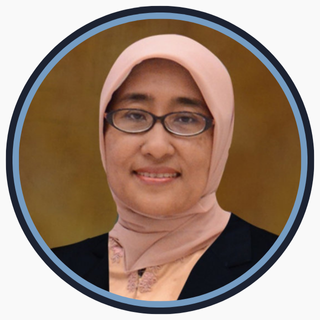Perceived Health Beliefs of Fertile Age Women Upon Early Breast Examination
Downloads
Breast cancer is still a problem in Indonesia, because 68.6% of patients go to the doctor at an advanced stage, while those who seek treatment at an early stage are only 22.4%. One of prevention that can be done is to detect early breast cancer by breast examination. This study was conducted to analyze the relationship between health beliefs felt by women of childbearing age with the act of checking their breasts early on. This research is an observational analytic study, which uses a case-control design. Samples were taken from the population by simple random sampling. The number of samples was 24 case groups and 24 control groups. The independent variable of research is perceived as perceived threats, perceived benefits, and perceived constraints. The dependent variable of the study was the act of checking the breast early on. The results of the study were then analyzed using the Chi-square test. The results of the bivariate analysis revealed that the variables related to the act of examining the breast early on were perceived threats (p = 0.013), and perceived obstacles (p = 0.021). Variables that are not related to the act of checking the breast early on are perceived benefits (p = 0.348). The conclusion that can be drawn is that the perceived threat and perceived obstacles that are felt by women of childbearing age are significantly related to the act of having a breast exam early. It is recommended for women to be able to be a savior for themselves as well as a motivator and motivator to fellow women in the surrounding environment to conduct early detection of breast cancer
Abazie, H.O. & Oluwatosin, O.A., 2014. Perceived health believes of breast cancer and knowledge of its early detection measures among rural women in Umuduru Mbano, Imo State. [Online] Available at: http://www.academicjournals.org/ article/article1397487482_Abazie%20and%20 Oluwatosin.pdf [Accessed 27 May 2014].
Azamris, 2006. Analisis Faktor Risiko pada Pasien Kaker Payudara di Rumah Sakit Dr. M. Djamil Padang. [Online] Available at: http://id.scribd.com/doc/152429946/cdk-152-Kesehatanwisatarev [Accessed 19 December 2013].
Azwar, A., 1996. Pengantar Administrasi Kesehatan. Jakarta: Binarupa Aksara.
Barroso, J., McMillan, S., Casey, L., Gibson, W., Kaminski, G., & Mever, J, 2000. Comparison between African-American and white women in their beliefs about breast cancer and their health locus of control. [Online] Available at: http://www.ncbi.nlm.nih.gov/pubmed/10939174 [Accessed 5 April 2014].
Bastable, S.B., 2002. Perawat Sebagai Pendidik:Prinsip-Prinsip Pengajaran dan Pembelajaran. Jakarta: EGC.
Dahlui, M., Gan, D.Eng Hwee., Taib, N.Aishah., Pritam, R., & Lim, J., 2012. Predictors of Breast Cancer Screening Uptake: A Pre Intervention Community Survey in Malaysia. [Online] Available at: http://eprints.um.edu.my/8279/1/Predictors_of_Breast_Cancer_Screening_Uptake-_A_Pre_Intervention_Community_Survey_in_Malaysia. pdf [Accessed 16 June 2014].
Desanti, O.I., Sunarsih, I. & Supriyati, 2010. Persepsi Wanita Berisiko Kanker PayudaraTentang Pemeriksaan Payudara Sendiri di Kota Semarang, Jawa Tengah. [Online] Available at: http:// berita-kedokteran-masyarakat.org/index.php/ bkm/article/view/230/127"Ž[Accessed 15 Januari 2014].
Dinkes, 2012. Kegiatan Pengendalian Kanker di Jawa Timur. [Online] Available at: http://dinkes.jatimprov.go.id/userimage/dokumen/ KEGIATAN%20PENANGGULANGAN%20KANKER%20DI%20JAWA%20TIMUR.pdf [Accessed 19 Desember 2013].
Kemenkes, 2012. Buletin Penyakit Tidak Menular. [Online] Available at: http://www.depkes.go.id/downloads/BULETIN%20PTM.pdf [Accessed 21 Desember 2013].
Kemenkes, R.I., 2013. Panduan Memperingati Hari Kanker Sedunia di Indonesia Tahun 2013. [Online] Available at: http://dinkes. jatimprov.go.id/userimage/dokumen/BUku%20Panduan%20Hari%20Kanker%20Sedunia_ terbaru.pdf [Accessed 19 Desember 2013].
Keputusan Menteri Kesehatan No. 796 Tahun 2010. Pedoman Teknis Pengendalian Kanker Payudara dan Kanker Leher Rahim. Jakarta: Kemenkes R.I.
Maulana, Heri D.J., 2009. Promosi Kesehatan. 1st ed. Jakarta: EGC.
Notoatmodjo, S., 2003. Pendidikan dan Perilaku Kesehatan. Jakarta: Rineka Cipta.
Notoatmodjo, S., 2005. Promosi Kesehatan Teori dan Aplikasi. Jakarta: Rineka Cipta.
Notoatmodjo, S., 2010. Ilmu Perilaku Kesehatan. 1st ed. Jakarta: Rineka Cipta.
Olfah, Y., Mendri, N.K. & Badi'ah, A., 2013. Kanker Payudara & SADARI. 1st ed. Yogyakarta: Nuha Medika.
Pramitasari, R.D. & Sarwono, 2008. Perawatan Payudara Dilengkapi dengan Deteksi Dini Terhadap Penyakit Kanker Payudara. Yogyakarta:Mitra Cendikia Press.
Purwanto, D.J., 2010. Deteksi Dini Kanker Payudara Dr. Denni Joko Purwanto Sp.B (Onk). [Online] Available at: http://www.omni-hospitals.com/ omni_alamsutera/blog_detail.php?id_post = 5 [Accessed 21 Desember 2013].
Sadler, Georgia R., Ko, Celine M., Cohn, Jennifer A., White, Monique, Weldon, Rai-nesha, & Wu, Philis, 2007. Breast cancer knowledge, attitudes, and screening behaviors among African American women: the black cosmetologists promoting health program. [Online] Available at:http://www.ncbi.nlm.nih.gov/pmc/articles/ PMC1858685/ [Accessed 5 April 2014].
Setyowati, I., Setiyadi, N.A. & Ambarwati, 2013. Risiko Terjadinya Kanker Payudara Ditinjau dari Pengetahuan, Sikap dan Perilaku Pencegahan. [Online] Available at: http://publikasiilmiah. ums.ac.id/handle/123456789/2961 [Accessed 16 June 2014].
Sobani, Zain-ul-Abedeen., Saeed, Z., Baloch, H.Noor-ul-Ain., Majeed, A., Chaudry, S., Sheikh, A., Umar, J., Waseem, H., Mirza, M., Qadir, I., Khan, S.Masood., & Kadir, M., 2012. Knowledge attitude and practices among urban women of Karachi, Pakistan, regarding breast cancer. [Online] Available at:http://www.jpma.org.pk/PdfDownload/3820.pdf [Accessed 18 June 2014].
Society, A.C., 2013. Cancer.org. [Online] Av a i l a b l e a t : h t t p : / / w w w. c a n c e r . o r g /cancer/breastcancer/moreinformation/ breastcancerearlydetection/breast-cancer-early-detection-acs-recs-clinical-breast-exam [Accessed 30 March 2014].
Suryaningsih, E.K. & Sukaca, B.E., 2009. Kanker Payudara: Kupas Tuntas Kanker Payudara. Yogyakarta: Paradigma Indonesia.
WHO, 2011 . Noncommunicable disease c o u n t r y p r o f i l e s 2 0 11 . [ O n l i n e ] Available at: http://whqlibdoc.who.int/ publications/2011/9789241502283_eng.pdf [Accessed 2013 Desember 19].
Wijayakususma, H., 2008. Atasi Kanker dengan Tanmaan Obat. 3rd ed. Jakarta: Puspa Swara, Anggota IKAPI.
- Every manuscript submitted to must observe the policy and terms set by the Jurnal Berkala Epidemiologi
- Publication rights to manuscript content published by the Jurnal Berkala Epidemiologi is owned by the journal with the consent and approval of the author(s) concerned. (download copyright agreement)
- Complete texts of electronically published manuscripts can be accessed free of charge if used for educational and research purposes according to copyright regulations.

JBE by Universitas Airlangga is licensed under a Creative Commons Attribution-ShareAlike 4.0 International License.























